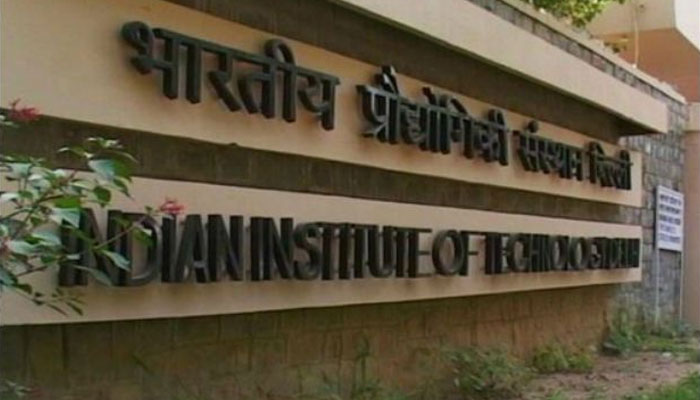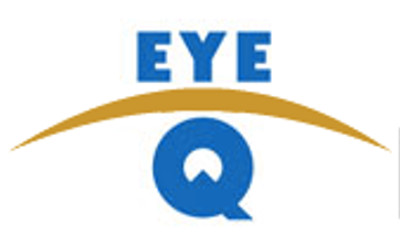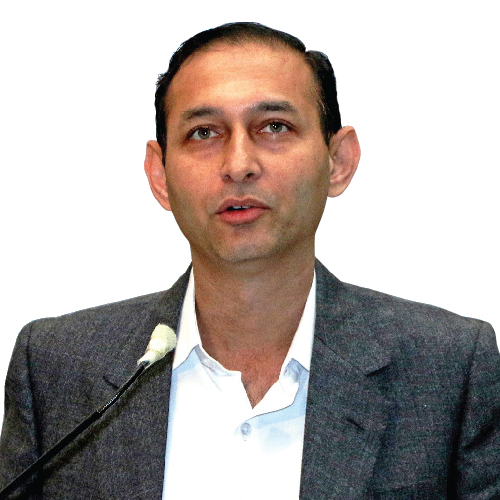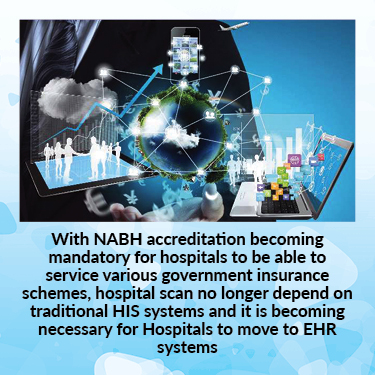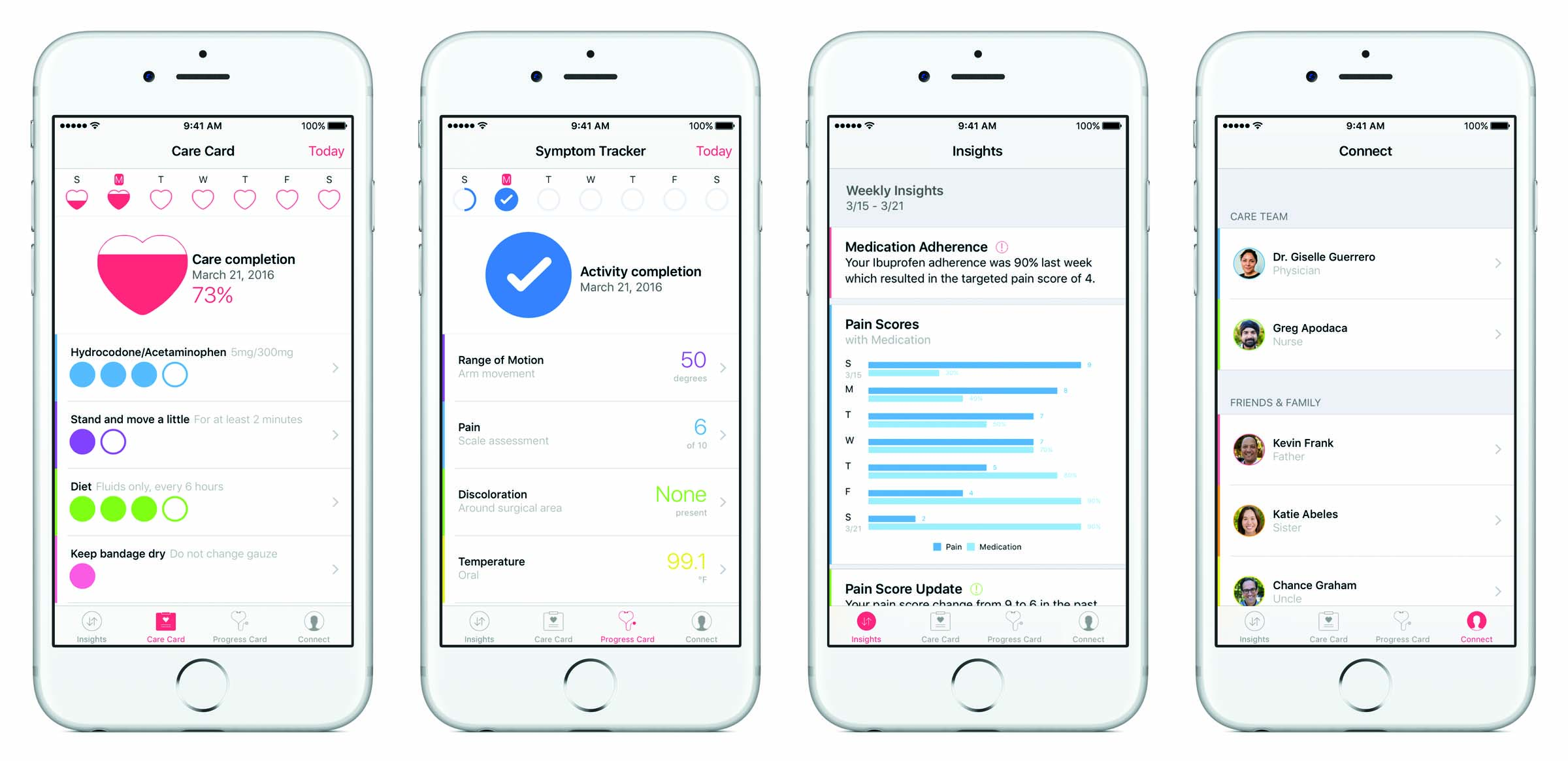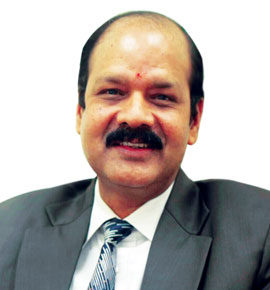
Technological innovations in the healthcare platform are making it baby steps into the country. More innovations like digitalisation, connectivity and data security will bring growth to the industry, informs Dr J Sivakumaran, Chief Operating Officer, Kovai Medical Center and Hospital Limited, Coimbatore in conversation with Prathiba Raju, Elets News Network (ENN)
How well regulated is the healthcare industry?

What are the reforms needed? Healthcare industry is still in the growing stage. Required regulations are not in place. Through NABH, authorities are trying to bring some framework to regulate and bring quality delivery. Though we can be proud to have more number of JCI and NABH accredited hospitals, still we have a long way to get stabilised and establish as a regulated industry. Hospitals need to develop a culture of sharing and reporting data to improve.
What can be done to make health services more affordable?
This is a double edged sword on the healthcare administrators. Providing state of the art technology is essential for differentiating from the competition and attracting the patients but to match with the market price is a challenge. This can be managed to some extend by scaling up the volume. Reaching the population with technology will make them mentally prepare to pay little more,

when the market price is not viable. Introduction of technology wherever possible will make the cost affordable to some extent.
How technology helps in the healthcare services?
Technology plays a very vital role in the healthcare services. Right from billing to the PACS, technology has become the part and parcel of healthcare services. Nowadays, patients can view their medical records from anywhere to have continuity of services. Telemedicine has now expanded from mere opinion to monitoring ICU patients from a command center to the remote locations. From a rural area, a patient can get expert opinion for further treatment, at an affordable cost. The high ICU expenses could be managed with local hospital charges, but still the patient can get specialists treatment. Indian doctors are successfully managing ICU beds in abroad “ thanks to telemedicine and technology.
What according to you should be done to change the healthcare service delivery with the ICT intervention?
The tax policies on hardware and software investments by hospitals either need to be exempted or lowered down to make everyone to use the ICT intervention. Government can mandate to have certain hospital activities to be done only through ICT to have more transparency and accuracy.ICT will reduce the healthcare delivery cost and at faster rate. Over a period, hospital can build its own evidence-based medicine. This will reduce the cost of treatment, reduce hospital stay and result in patient satisfaction.
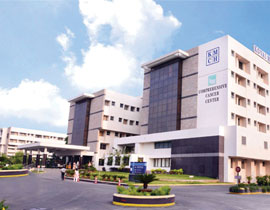 How KMCH IT system boost in-house operational efficiency?
How KMCH IT system boost in-house operational efficiency?
What are the areas in which you are leveraging innovative IT solutions and how it helps the patients? The hospital performances like occupancy, discharge, admission, collection, surgery and procedure details could be viewed in mobile. The dash board system throws lot of managerial information for taking suitable decision in time. Right from appointment system to discharge processes can be efficiently handled by the professions with the help of IT system. Equipment tracking and billing system, hand wash compliance system, vital parameters tracking system are in pipeline to enhance our operational efficiency. We constantly engage the IT team to study and simplify the process for easy usage. Starting from alerts on abnormal results, gender based lab procedures, integrating equipment, helps to standardise the process thereby reducing errors.
What are the challenges you are facing today as digital data is exploding?
How do you see the role of Big Data analytics and what are its key advantages? A good IT system requires reasonable investment. When the operation expands, more and more investment is needed to meet the requirements. Apart from investment getting skilled man power in this domain is also a challenge. When more and more operational decisions are depended on IT, a good team to understand and customise the need within the time frame, is a challenge. Due to heavy attrition of paramedical staff, a dedicated training team is needed for training and re-training IT, to get better results. Bringing the paramedical staff to the required standard itself is a challenge. With converting our process digital; data security, privacy and accessibility are the key challenges.
KMCH is having a research foundation that adopts villages and does various research activities. It does various clinical tests and collects data for trending various disease patterns with these villagers. This will be further analysed and published by epidemiologist for the benefit of researchers. It has tied with giants like IIS Bangalore, IIT Chennai, SASTRA universities for various collaborative studies. Again IT plays a very vital role in collating and analysing a huge data. The results of these data throw very vital information for the society at large. We are too early in India to talk about Big Data in healthcare. Even before discussing about Big Data, we need to understand the context of Big Data in healthcare.
Do you think mobile based healthcare have potential in India? How mobility devices and telcos aiding remote healthcare monitoring?
terns with these villagers. This will be further analysed and published by epidemiologist for the benefit of researchers. It has tied with giants like IIS Bangalore, IIT Chennai, SASTRA universities for various collaborative studies. Again IT plays a very vital role in collating and analysing a huge data. The results of these data throw very vital information for the society at large. We are too early in India to talk about Big Data in healthcare. Even before discussing about Big Data, we need to understand the context of Big Data in healthcare. rural health. But M2M in India is still in infant stage. When two machines talk to each other without human intervention, it is M2M. The transmitted results in areas like patient care, patient monitoring will be very exciting and useful. One of the vital advancement of healthcare industry transformation is this technology with the use of a tiny sensor. KMCH has already developed and deployed Apps for cardiac care patients from the time we pick the patient from home until he reaches the secondary or tertiary care hospital with all vital data recorded and published for the treating doctor. There is a huge potential for mobile based healthcare services. Earlier to monitor the fetal heart rate, the pregnant mother has to come to the hospital. But now a cordless fetal monitor could be attached with the mothers belly and she can lie at home comfortably. Advanced mobile technologies help patients shift healthcare from tradition hospitals to home. For example many healthcare apps like monitoring blood pressure are available in Play Store. With government coming up with Smart Cities and penetration of 4G mobile helathcare apps will play a major role in rural health. But M2M in India is still in infant stage. When two machines talk to each other without human intervention, it is M2M. The transmitted results in areas like patient care, patient monitoring will be very exciting and useful. One of the vital advancement of healthcare industry transformation is this technology with the use of a tiny sensor. KMCH has already developed and deployed Apps for cardiac care patients from the time we pick the patient from home until he reaches the secondary or tertiary care hospital with all vital data recorded and published for the treating doctor.
Be a part of Elets Collaborative Initiatives. Join Us for Upcoming Events and explore business opportunities. Like us on Facebook , connect with us on LinkedIn and follow us on Twitter , Instagram.


